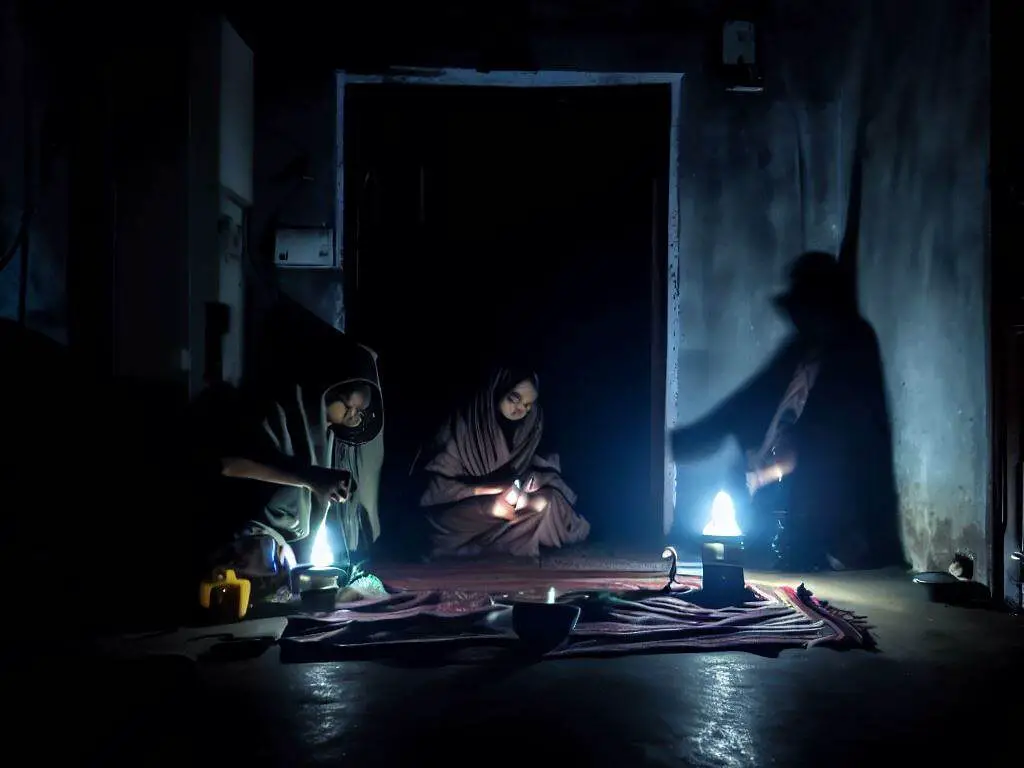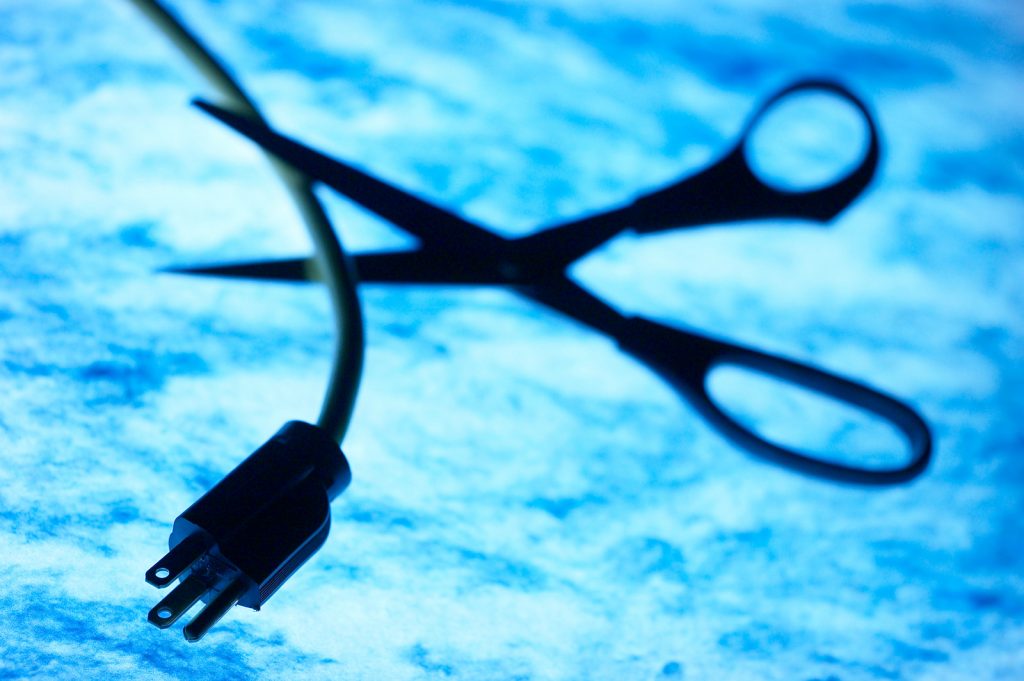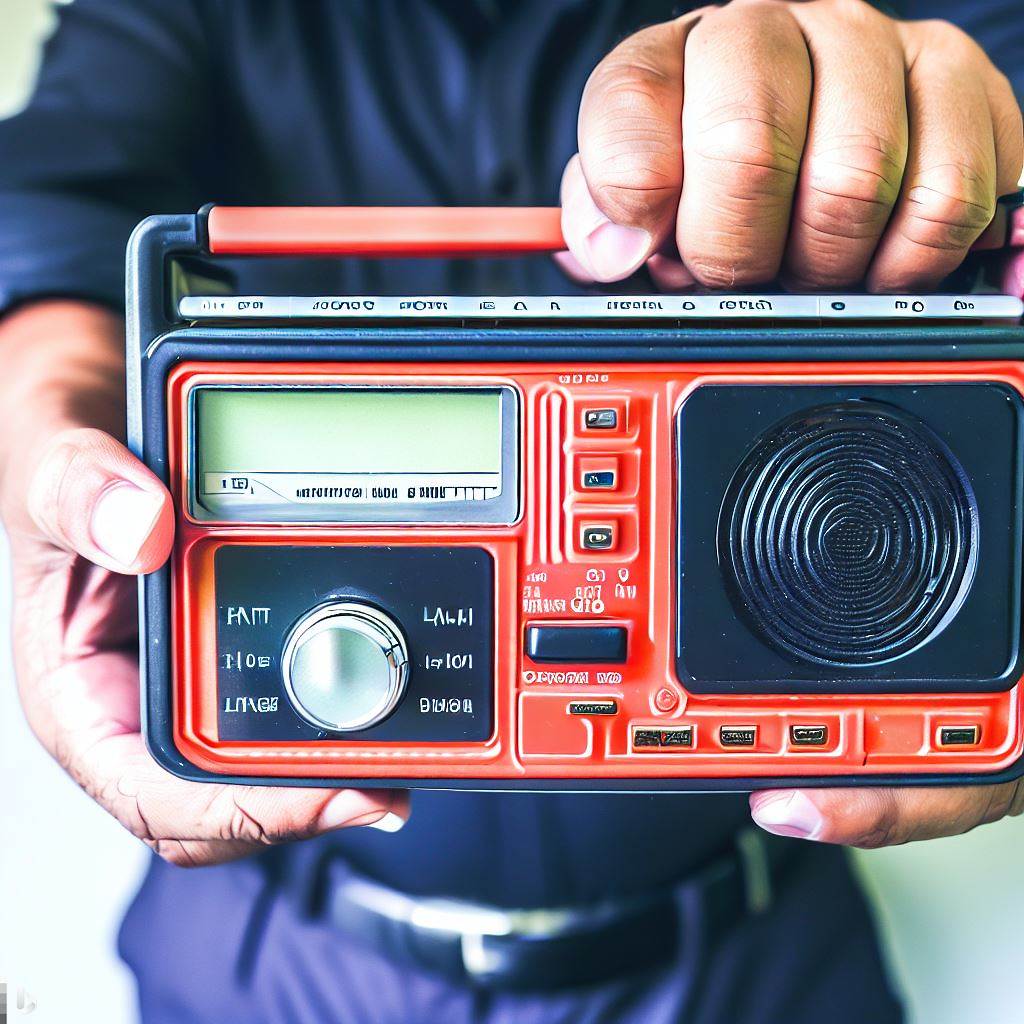
Power cuts can be a major inconvenience, but being prepared with the right supplies can make all the difference. When the electricity goes out, having a list of necessary items on hand can help you stay safe and comfortable until the power outage is resolved.
Power cuts can be inconvenient, but you can prepare by reviewing your home insurance policy, following guides from the National Grid and energy networks, having alternative power supplies and a fully charged mobile phone, and storing food properly.
Power Outages in the UK: Statistics and Causes
According to the Digest of UK Energy Statistics (DUKES) released by the UK government, the total number of power outages in the UK has been decreasing steadily over the last few years. In 2021, there were 237 power outages reported, which is a decrease from the 319 reported in 2017 (source: GOV.UK).
However, power outages can still cause significant disruption and inconvenience for those affected. UK Power Networks provides a live power cut map on their website, which allows users to search for power cuts by postcode and view all power cuts as a list. The website also provides extra support and advice for those experiencing a power cut (source: UK Power Networks).
In August 2019, a major power outage affected over 1 million customers across Great Britain. The UK government subsequently published a report outlining 10 clear actions to reduce the likelihood and impact of future power outages (source: GOV.UK).
With the ever increasing use of electricity in the country, in the future power cuts may not be so rare. Be prepared for a power cut with these supplies.
To make sure you’re ready, follow our advice on how to prepare for a power cut, including checking for weather warnings, finding out who your electricity network is, unplugging non-essential electrical appliances, and preparing an emergency survival kit. Make sure to share this information with others in your community.
Power outage supplies list
Prepare for power cut emergencies with essential items like a light source, emergency radio, backup power pack, water heating source, food, sanitation items, hand warmers, sleeping bag, portable heater, and first aid supplies. These items can be crucial during an emergency situation.
Here’s a list of the main items you will need in a power cut:
- A light source – battery operated torch.
- Batteries.
- Candles.
- Emergency radio – wind-up radio.
- Backup power pack – portable power bank.
- Something to heat up water – camping stove.
- Tinned food or ready meals – ready to eat and dried foods.
- Prep for sanitation – hand sanitizers, wet wipes.
- Hand warmers.
- Stock up the first aid kit – bandages and disinfectant etc.
- Wrap yourself up in these items – sleeping bag
- Get a portable heater – with gas canisters.
- Use your car.
- Get a camping stove.
- Purchase a cooler box.
- Keep cash to hand.

How to prepare a power cut survival kit
Because we rely on electricity so much, it is always better to prepare beforehand. So here, we look at the essential items you need to have in a power cut.
1. A light source
To be able to find the way around your house without hurting yourself or breaking anything. Most people’s instincts would be to go with candles or tea lights and this is perfectly workable. Just make sure you also buy some candle stands for them as well as matches or lighters to go with them.
But if you have kids, do you really want a dozen candles all around the house? It would be better to focus on other sources of light such as flashlights which are safer. Go for multi directional lights which can light up an entire room. Also keep plenty of batteries to go with them.
Head torches are a great idea so you can move around the house and keep both hands free. Glow sticks could also be a part of your emergency lighting options, as having no flame, are safe to use in any emergency situation in any room.
Best torch for power cuts

This flashlight is a versatile and durable tool that can light up an entire room or focus on objects up to 1000 feet away. It has 5 useful settings and a wide-to-narrow beam zoom, making it ideal for use around the house. It is easy to carry and charge and is water-resistant and able to withstand rough handling and freezing temperatures.
2. Batteries
Batteries are an essential item to have during power cuts as they provide a source of backup power. When the electricity goes out, batteries can be used to power essential items such as flashlights, radios, and other electronic devices. This can be particularly important during emergencies, as it allows you to stay connected and informed.
It’s important to have a variety of different types of batteries on hand, as different devices require different sizes and types of batteries. For example, flashlights often require AA or AAA batteries, while radios may require larger batteries such as C or D cells.
Rechargeable batteries can also be a good option, as they can be reused multiple times and are better for the environment. By keeping a supply of batteries on hand, you can ensure that you are prepared for any power outages or emergencies that may arise.
3. Candles
Candles are another essential item to have during power cuts. They provide a source of light and can create a warm and comforting atmosphere in an otherwise dark and uncertain situation. Candles can be used for a variety of purposes, such as providing light to read or work by, or simply to create a relaxing ambiance.
By having a supply of candles on hand, you can ensure that you are prepared for any power outages or emergencies that may occur. They are a simple yet effective way to provide light and comfort when you need it most.
4. Emergency radio for information

If you are without power, having access to critical weather and news updates will be essential. Also, as they are radios, they can provide morale boosting music to keep you going. Look for emergency radios that have both replaceable batteries and also a rechargeable battery compartment which can be wound up with a crank. Some also have solar panels on them to recharge.
5. Backup power pack
Keeping a high capacity portable power pack will come in very handy for charging mobile phones and the many electrical devices that use USB cables. Make sure it stays almost full as some can take a few hours to reach full charge.
6. Something to heat up water
Mains water should be fine to drink in a power cut, but if you need hot water, which is always a good idea, you can use the gas hob to heat it up. If you don’t have gas in the property, you should invest in a camping stove which is enough to boil water to sterilise it, or cook some soup or pasta. Remember to buy extra gas canisters that go with it. Also have a large capacity thermos flask to store hot water in. A hot water bottle will come in handy too.
7. Have a stock of tinned food or ready meals
If you don’t have mains gas, you will need something that is quick and easy to cook with a camping stove, so keep your cupboard stocked up with tinned food. Having a variety of foods will help give you the right nutrition mix. Even better is to stock up with foods that don’t need to be cooked at all.
8. Prep for sanitation
Stock up on hand sanitizers so you don’t need to wash your hands with cold water all the time (the boiler also needs electricity to work). Baby wet wipes are good for wiping your face and after you have been to the toilet.
9. Hand warmers or pocket warmers
If you lose power in the middle of winter, your house will get cold really quickly. So keep individual hand warmers for every member of your household which can provide heat for up to 24 hours.
10. Stock up the first aid kit
Check your first aid kit and make sure it has all the main items such as dressings, disinfectant, gauze, bandages, ointments and items to use in an emergency. There are many hazards in the dark and having this kit will be an essential item.
11. Wrap yourself up in these items
Wool blankets and sleeping bags are some of the many ways you can keep warm when you are not moving about. When sleeping at night, you are not moving about and the temperatures are at their lowest.
12. Get a portable heater
A propane heater that can be carried around and safe for indoor use with safety features is essential in a winter power outage. They can use small canisters but some even come with an extended conversion hose to connect to a bigger tank, if you wish to purchase it.
13. Use your car
A car can be a life saver in an emergency situation to provide heat and power up certain devices. Make sure to keep the fuel tank at least a quarter full in the winter months, don’t let it go below this level. In an emergency, it can take you to a nearby area which hasn’t been affected by a power cut and maybe find a hotel to check into for the night.
14. A camping stove
In the event of a power cut, a camping stove can be a useful tool to have on hand. Not only can it be used to cook food, but it can also be used to heat up water for coffee or tea, or even for taking a hot shower. With a camping stove, you can still cook and enjoy a hot meal, even if the power is out.
15. A cooler box
Use a cooler box to keep items fresh for longer and the frozen items won’t perish so quickly. This will save you having to throw food and drinks away due to power cut, saving you money, and importantly, keeping you hydrated. A portable cooler box will also keep your medication safe and cool.
16. Cash
Make sure to keep some cash available for emergency situations like a power cut, where power lines cash machines will be out of order. Cash will help you buy food and drinks, any other emergency items needed, pay for transportation if you don’t have a car and help pay for a hotel room.
What to do in a power cut
A power cut is an interruption of electricity supply to an area. It can be either planned, in which case you will be notified prior; or unplanned outages where causes such as severe winds, lightning and underground water can affect the supply. Power cuts can be as short as a couple of seconds to some that last for days.
During a power cut, it’s important to stay safe. If you experience an outage, report it to your local power network using the Energy Network Association’s postcode lookup tool (given below) or by calling them about damaged power or electricity lines. If you believe there is a significant risk to the public, call 999.
Switch off all appliances that shouldn’t be left unattended and use torches instead of candles or fires. Keep warm by wrapping up and closing doors and windows. Check on vulnerable neighbours or family members if you’re able.
Unplug sensitive appliances like TVs and computers, and switch off and unplug heated appliances like ovens and irons to prevent damage when the power comes back on. It’s also a good idea to have a battery-powered radio or other source of information on hand to stay up-to-date on the status of the power outage and any other important information. By being prepared with the right supplies, you can stay safe and comfortable during a power cut.
Check for power outages in your area
In a genuine power cut, the energy distributors manage the electricity network and it is them you should contact, not your energy supplier. Go on to the energy network website and find out who your local distributor is. You just need to enter your postcode. You can also call them on 105.
Check to see if your neighbours’ power is out as well. Your trip switch may have been activated if they have power. Wrap up warmly and close internal doors to keep the heat in. Report the power cut to your network operator by ringing 105.
it’s also a good idea to have a mobile phone or other means of communication in case of emergency. If the power cut lasts for an extended period of time, you may also want to check your home insurance policy to see if it covers any losses you may have incurred, such as spoiled food in the fridge.
The National Grid and energy networks work hard to resolve power cuts as quickly as possible, but having the right items on hand can help you weather any unexpected outages.
First check in your home
If the lights go out, first check if it’s only your home, or is it affecting everyone. Check whether the street lights are on or if a neighbour has power. If it’s something at home, check the fuse box to see if any switches have been tripped. Still no power? Call a qualified electrician to get it fixed.
As a summary: turn off all electrical appliances that should not be left unattended in preparation for when the power is restored. Keep a light on to let you know when the power is restored.
If you want a home cover plan that also covers electrics, check out Hometree on our recommended page.
One thing to note, check with a couple of neighbours, as in the UK, the electricity network is built in such as way that different houses, even in the same street, can receive their power from different electricity cables. So if there is a fault with one cable, not everyone’s power goes off.
Priority services
For people who rely on medical equipment powered by mains electricity, it is important to contact your electricity distributor and also your energy supplier beforehand to ask to be put onto their priority services register. There is usually an online form you can fill in to let them know.
Tips to help vulnerable people prepare for a power cut
Families with young children
It’s important to have a plan in place for how to care for young children during a power cut. Make sure you have a supply of bottled water and non-perishable food items on hand, as well as a way to heat up food if necessary. Consider investing in a portable generator or battery-powered backup system to power essential items like a refrigerator or medical equipment. Keep a supply of diapers, wipes, and other baby essentials on hand, and consider using battery-powered nightlights or glow sticks to help soothe young children during the outage.
Elderly individuals
Elderly individuals may have specific medical needs that require electricity, such as oxygen machines or medical alert systems. Make sure you have a backup power source for these items, such as a generator or battery backup system. Keep a supply of prescription medications on hand, and make sure to keep them in a cool, dry place to prevent spoilage. Consider investing in a landline phone or cell phone with a long battery life in case of emergency.

How to report a power cut
There are a couple of different ways to report a power cut. Don’t assume your electricity network operator is already aware that your property has no incoming power. You can phone them on the general number 105 and they will give you the correct number.
Other ways to report a power cut is on the company’s website, or you can Tweet them. You should also be able to text them. It is a good idea to find and keep emergency numbers handy beforehand, maybe near the electricity meter.
- keep emergency telephone numbers nearby like on the electricity meter.
- keep phones well charged beforehand.
- Have a corded plug-in phone as a spare as cordless phones won’t work
- Remember to switch off or unplug electrical appliances. During power cuts there can be electrical surges in the network which can damage appliances. Just keep one light switch on in the house to let you know when the power comes back.
- Try not to open the fridge and freezer doors too often. This will help keep the food fresher for longer.
What compensation do you get in a power outage?
You may be able to get compensation for both planned and unplanned power cuts but this depends on what caused the power cut and how long it lasted.
You can get between £30 and £70 depending on what caused the power cut, how much notice you were given and how long it takes for the power cut to be fixed. Citizen’s Advice has more information on this. Click here to go to their website.
Find out more on how to save on our Tips and Fixes page
Power cut advice for businesses
Do you know what items you will need when a power cut hits your small business?
Your business might have a power cut due to severe weather, a fault on the network, or theft and damage caused by third parties. To ensure your business is prepared, you can use a back up power supply (UPS) that provides emergency back-up. You can also rent or buy a generator to help you carry out your daily business.
Make sure to save or backup your work regularly on your computer or laptop, and keep laptops charged. Try to purchase electronic equipment that has memory stores to recover data.
Items you will need when a power cut hits your small business
- Backup water supply. Should clean water be affected.
- First aid kit. With usage instructions.
- Power for back up safety systems. For smoke alarms, sprinklers, emergency exit signs.
- Power Generator. To keep essential equipment running. Think about an alternative fuel generator.
- Portable space heater. If you really need to stay in the office to get things done.
- Surge protection equipment. For sudden changes in voltage that can damage equipment.
- Portable internet connection. Mobile wifi hotspots for complete important internet tasks.
- Solar cell charger. To power smaller items and individual laptops.
*The information in this article should be used for general guidance only and not as financial or health advice. Full details are on the link in the footer to our disclaimer page. Always discuss your requirements with a competent and suitably qualified professional before undertaking any work.
